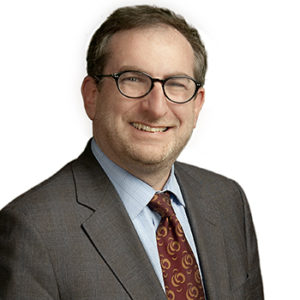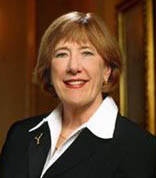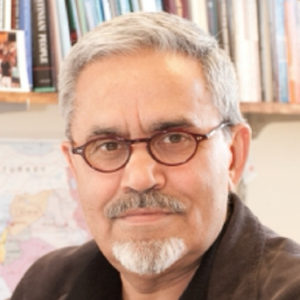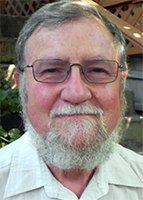A panel of highly distinguished speakers came together on March 4 to discuss and debate the question of whether there should be limits to freedom of speech at universities.
Co-sponsored by the Office of the Head of McLaughlin College and the York Collegium for Practical Ethics, the panel included: Professor Lorna Marsden, president emerita, York University (1997-2007); Professor Emeritus Saeed Rahnema, an award-winning teacher and the founding director of York’s School of Public Policy and Administration; and Justice Lorne Sossin, Ontario Superior Court of Justice, and formerly, the dean of Osgoode Hall Law School and the Chair of the Freedom of Speech Working Group at York University.
The panel was chaired by University Professor Emeritus Ian Greene.
Collectively, this distinguished panel of speakers brought with them a wealth of knowledge and experience on the issue of freedom of speech, particularly, at York University.

Sossin explained the question came to the fore again 2018, when the Ontario Government issued a news release calling on universities and colleges to introduce free speech policies by Jan. 1, 2019, stating that universities and colleges not complying with this free speech policy requirement could be subject to a reduction in their operating grant funding.
York University already had policies that support freedom of speech, so it was a case of summarizing existing policies. The Canadian Criminal Code, Sossin noted, has provisions against the incitement to hatred that is likely to lead to a breach of the peace. In addition, there is the York University Act and University Senate policies. The resulting document summarizing York’s policy on free speech, he stated, was the consequence of an extensive public consultation process. The policy was approved by the University’s Senate and Board of Governors on Dec. 14, 2018.
York University’s “Statement of Policy on Free Speech” defines the freedom of speech as “the right to seek, receive, share and impart information and ideas of all kinds, in a variety of forms, including orally, in writing, in print, and in the form of art or music, or through any other media of one’s choice.” Quoting the Task Force on Student Life, Learning & Community (2009), the policy states “the University has an unwavering commitment to fundamental values of free expression, free inquiry, and respect for genuine diversity of thought and opinion.”
It also states that students are responsible for upholding an atmosphere of civility, diversity, equity and respect in their interactions, and should strive to make the campus a safe place.
Sossin also referenced a recent Alberta Court of Appeal judgement that ruled that freedom of speech is protected by Section 2(b) of the Canadian Charter of Rights and Freedoms. However, there are conflicting judgments by the provincial courts of appeal and the question of Charter protection will ultimately have to be decided by the Supreme Court of Canada.

Marsden said that universities have changed dramatically from 19th century, when students lived in residence on campus and were able to socialize during their studies. She noted the degree of mutual understanding and tolerance of opposing views and opinions among students is very different today.
Most university students are commuters who spend limited time on the campus, she said, and have limited face-to-face interaction with other students unlike themselves. This is highly relevant because being able to see someone’s expressions, body language and reactions during a conversation is meaningful.
She pointed out that freedom of speech in this technological age is mediated through social media and electronic devices and virtual realities. Given the diversity of our modern society, where cultural and identity issues prevail, this complicates the practice of free speech, making it more difficult to learn more understanding and tolerance in daily life.

Rahnema focused on the international context and stated that we live in a rapidly changing and deteriorating world with wars, regional conflicts, authoritarianism, financial crises, a widening gap between rich and poor, and refugee crises. This has led to a growing sense of insecurity, helplessness, despair and anger, which has in turn led to the rise of right-wing populisms, neo-fascisms and the growth of religious fundamentalisms. He suggested that as hugely important and divisive issues of racism, sexism, homophobia, abortion rights or global warming might be, the more intense disagreements in most North American universities, including York, center around the Israeli-Palestinian conflicts and the religious fundamentalisms.
When he taught the course “War and Peace in the Middle East,” he said he dealt with many conflicts and confrontations in and outside of the class. Yet, the most controversial topics were discussed, and students were encouraged to openly challenge one another, with the belief that some of the animosity was due to misinformation and lack of knowledge. Nonetheless, with the deterioration of the situation in the region, student clubs on both sides, and their communities, took hardened positions and reacted rapidly and frequently to ongoing daily events occurring in the Middle East.
Rahnema concluded that we should all fight against all regressive and reactionary efforts by violators of human rights and cherish and use our freedom of expression responsibly to combat the political and religious and business forces that want to limit freedom of expression.

Universities, he said, can neither end the conflicts in the region, nor can they have access to the inner workings of the communities, the media, and the influence they have over students. The only thing that universities are capable of is promoting critical thinking, facilitating open forums for discussions, educating and challenging obscurantist views, and encouraging doubting and questioning.
Following the presentations, Greene moderated a lively discussion on a broad set of concerns and comments ranging from why the Government of Ontario chose to pursue the issue of free speech on university and college campuses, to whether the issue centered on concerns of personal safety, vulnerability, and dignity to questions of the importance and necessity of leadership within the higher education institutional setting on the inviolability of freedom of speech, as it functions within the law.
Originally published in YFile.
